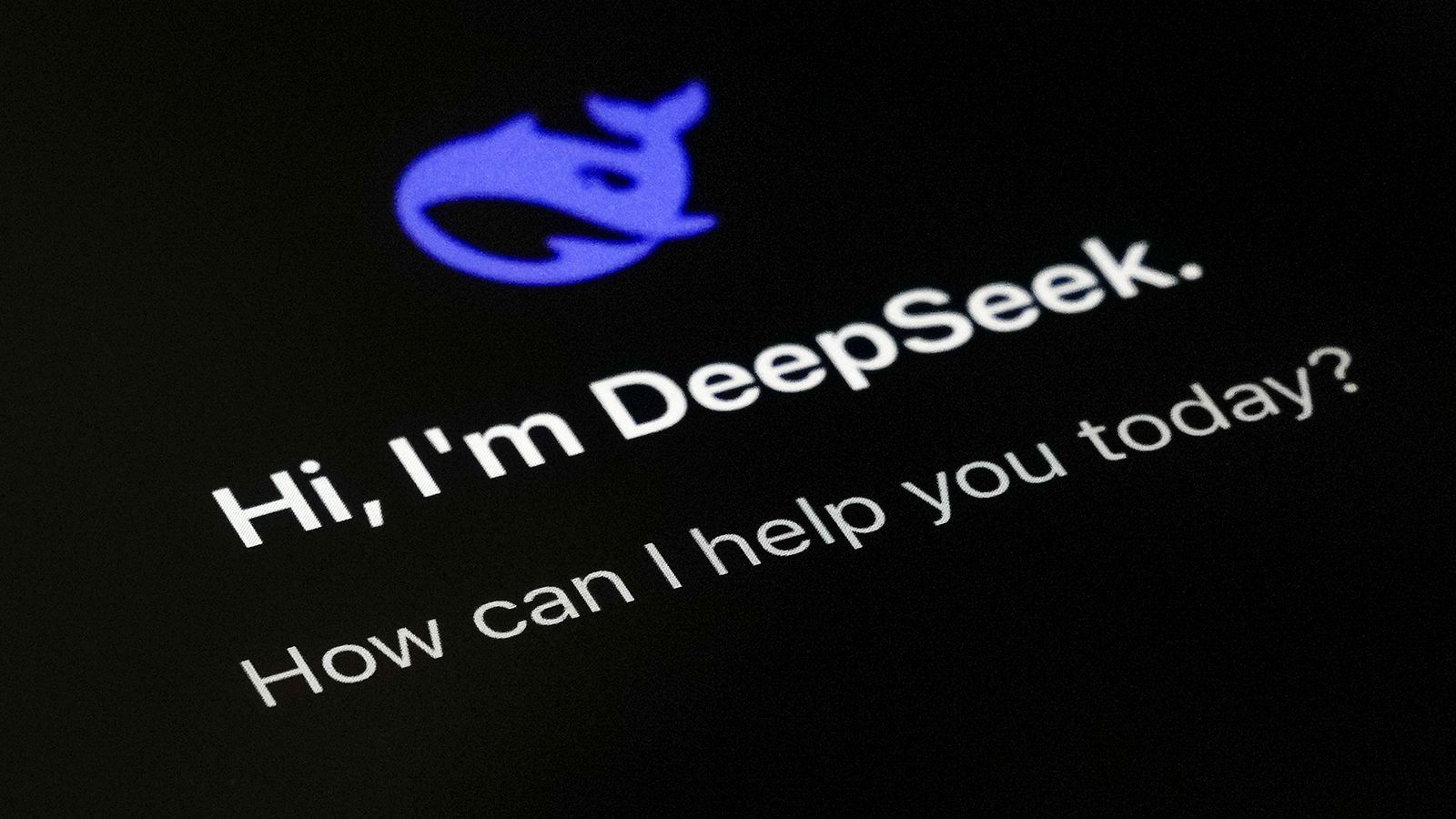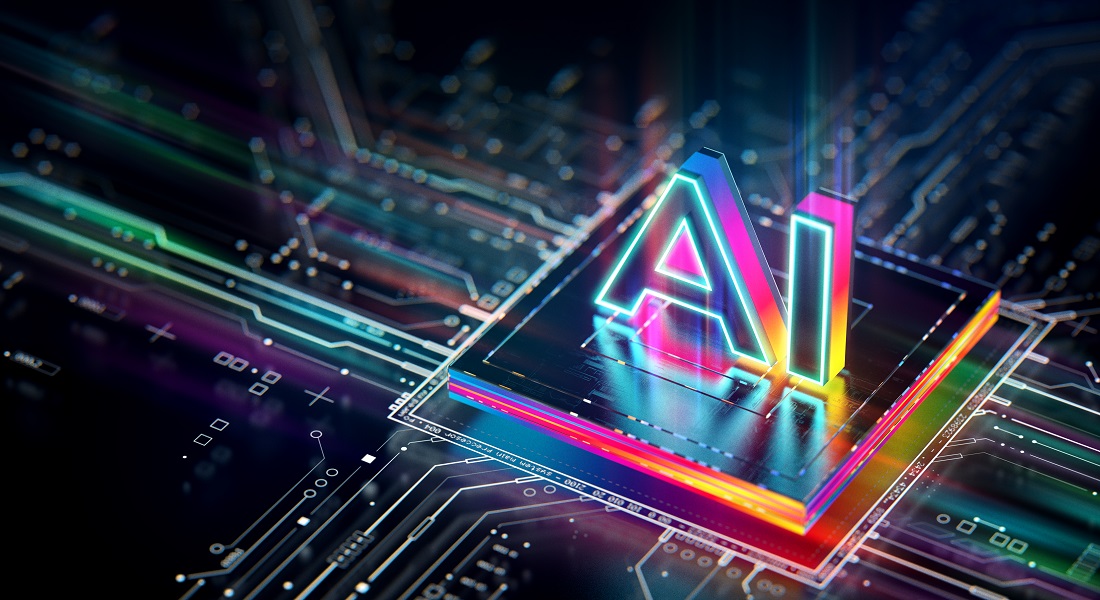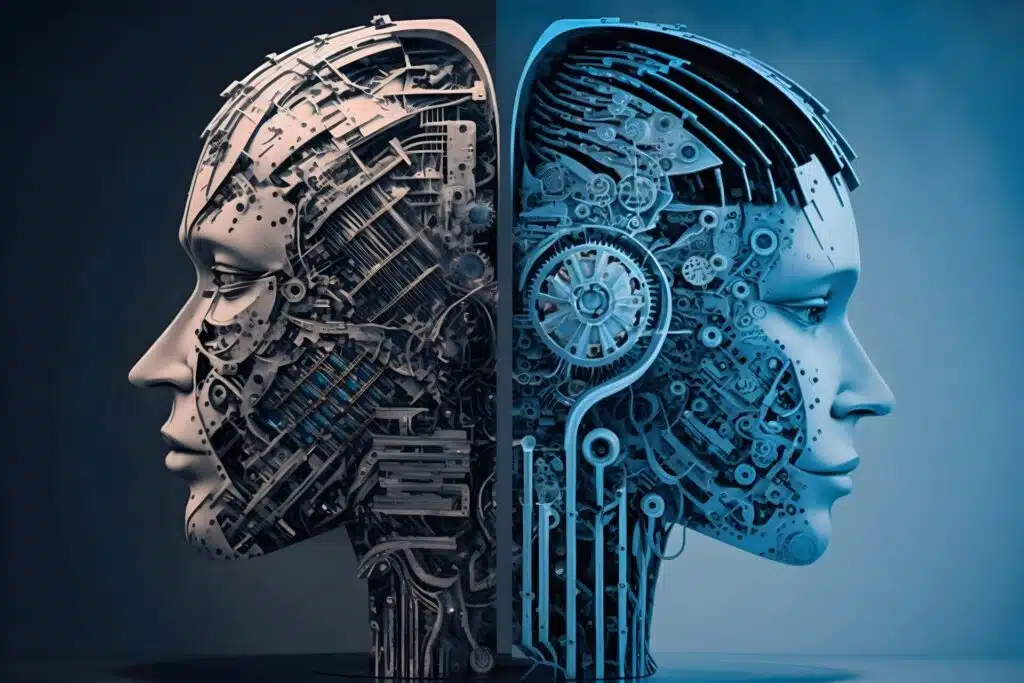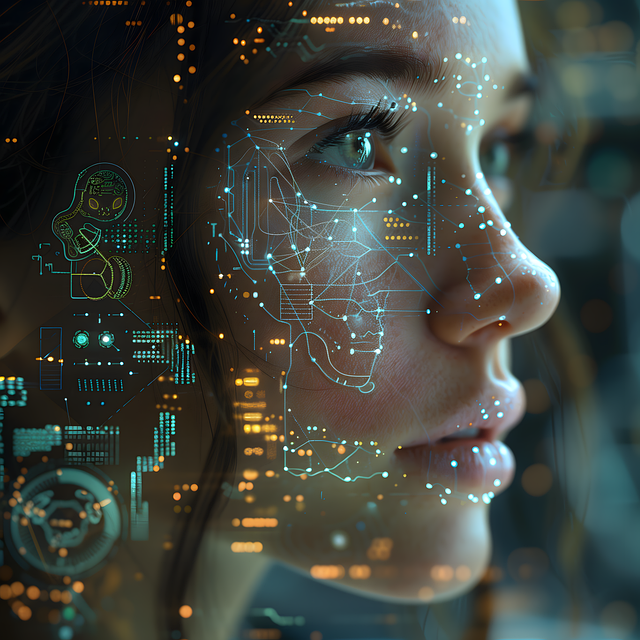
We may earn money when you click on links to our partners. Discover more.

What is artificial basic intelligence (AGI), and why does it matter? As one of the most talked-about subjects in innovation today, it has actually stimulated a race amongst leading business like OpenAI and Google to turn this cutting-edge principle into reality. Understanding AGI is crucial since it has the possible to revamp markets, affect our society in extensive ways, and code.snapstream.com alter the method we engage with technology. Here's what you require to learn about what it may be able to do, how it might change industries and fields, and the considerable obstacles facing its advancement.

KEY TAKEAWAYS
• AGI differs from standard AI in essential methods that it would have the ability to believe, learn by itself, passfun.awardspace.us and adjust to new challenges like humans unlike traditional AI, which is developed for specialized tasks and operates within a limited scope. It needs humans to upgrade and fine-tune abilities. (Jump to Section).
• Once it becomes a truth, AGI would be able to make exceptional advances in numerous fields, including healthcare, research, and finance sectors. (Jump to Section).
• Creating AGI is difficult due to the research study challenges that consist of technical, ethical, and social problems. Addressing these obstacles is central to keeping the safe and favorable advancement of this technology. (Jump to Section)
Featured Partners: Artificial Intelligence Software
Learn More
TABULATION
What is Artificial General Intelligence (AGI): A Clear Definition.
Understanding AGI vs Traditional AI.
Potential Applications of Artificial General Intelligence.
Challenges in Artificial General Intelligence Research.
3 Introductory AGI Courses to Consider.
Frequently Asked Questions (FAQs).
Bottom Line: Why Knowing What Is Artificial General Intelligence Matters.
What is Artificial General Intelligence (AGI): A Clear Definition
Artificial basic intelligence, or AGI, describes a type of synthetic intelligence (AI) that can translate, discover, and perform any cognitive task that a human can do. Unlike today's AI, which is constructed to deal with specific tasks like advising items or processing information, AGI would be able to adapt to new obstacles and use understanding throughout various fields. In other words, this advanced type of AI would think and disgaeawiki.info reason like a human. While AGI holds terrific potential, it deserves noting that it is still a principle today, with no completely established systems offered yet.
Key Capabilities of Artificial General Intelligence
AGI would have a variety of abilities that imitate human intellectual functions, so it can perform jobs beyond the narrow focus of the current AI tools in the market. Some key capabilities include the following:
Human-Like Reasoning: The technology would be able to comprehend and make choices the way people do. It would think seriously, solve problems, and develop options based on its own experiences and past interactions, comparable to how we use past knowledge to brand-new situations.
Solving Unfamiliar Problems: One of AGI's strengths is its potential to take on new problems. Unlike conventional AI, which is trained to carry out specific tasks, AGI would have the capacity to deal with issues it hasn't been straight trained to fix. It might figure out how to approach an entirely brand-new obstacle, similar to humans do when faced with something we've never ever experienced before.
Self-Learning and Adapting: AGI might tweak its skills and find out from experience, without the need to be by hand upgraded whenever. It would observe and analyze data, discover from mistakes, and find much better ways to complete tasks in time. This means AGI might adapt to brand-new scenarios and get much better at jobs on its own.
Using Knowledge Across Different Areas: AGI would have the ability to take what it learns in one location and apply it to other tasks. For instance, if it found out how to solve mathematics issues, it might utilize that knowledge to attend to obstacles in other fields, like science or service. The ability to transfer skills across various locations is something humans do naturally and would make the innovation versatile in varied sectors.
Understanding and Responding to Emotions: Recognizing and responding to human emotions would also be within AGI's abilities. This would be very important in settings where understanding individuals's sensations matters, such as health care, customer care, or social circumstances. By responding to feelings properly, AGI would be much better geared up to work with human beings in a reliable way.
Understanding AGI vs Traditional AI
The table listed below offers a picture of the significant distinctions in between AI and standard or narrow AI by underscoring their capabilities, adaptability, and present status.
AGI would have the capability to think, find out autonomously, and adjust to new difficulties like people. However, it is still theoretical and has not been recognized yet. On the other hand, conventional AI is built for specific tasks and runs within a fixed scope. It can not adapt to new tasks without human input.
For example, an AGI could learn to detect medical conditions, then use that knowledge to establish customized treatment plans-and even adjust its approach based on the client's development. Additionally, it might use this analytical capability to jobs in entirely various fields, such as producing organization methods or encouraging on environmental preservation. In contrast, conventional AI, like a diagnostic tool, can just analyze medical information for particular conditions. It can not adjust to other areas or improve on its own.
Potential Applications of Artificial General Intelligence
While AGI isn't here yet, its prospective applications cover many fields and hold terrific guarantee of drastic developments in numerous sectors. Without being restricted to particular tasks like narrow AI, AGI would be extremely versatile and could use its abilities to resolve multi-disciplinary issues. It could conquer difficulties currently beyond the capabilities of existing AI applications.
Transforming Healthcare

AGI would change the video game in healthcare by detecting complex and rare illness with greater precision, even in cases where signs are unclear or overlap with numerous conditions. It could produce extremely customized treatment plans by studying patient history, hereditary info, and real-time health information. In addition, AGI could accelerate drug discovery, recognizing possible treatments in weeks rather than years by processing huge datasets and wiki.lafabriquedelalogistique.fr running predictive simulations.
Advancing Scientific Research
In clinical research study, AGI would be able to imitate experiments, analyze elaborate datasets, and produce hypotheses. It might accelerate developments in quantum physics, genomics, and climate science. By incorporating knowledge from different domains, the technology could uncover connections and options that may otherwise go unnoticed by conventional AI.
Improving Industry
Organizations in the commercial field might use AGI to boost effectiveness in real-time by handling entire supply chains. It would forecast and solve interruptions before they occur. In manufacturing, it might oversee autonomous factories, enhancing production procedures while keeping safety and quality standards. Its capability to adapt to altering situations would make it an invaluable tool in commercial environments.
Enhancing Business Strategy
AGI might improve business decision-making by assessing market patterns, customer behavior, and operational data to discover chances and risks. In contrast to narrow AI systems, AGI would innovate solutions to challenging business issues, such as dealing with economic uncertainty or forecasting long-term market shifts. Its capability to discover from diverse sources would empower organizations to remain competitive.
Redefining Finance
In the monetary sector, AGI might increase forecasting precision by identifying patterns in vast quantities of monetary data, so financiers and institutions can make educated choices. It would also have the ability to find scams in real-time by recognizing subtle anomalies that conventional AI systems may miss out on. Additionally, AGI might construct more robust monetary designs, considering complicated variables and scenarios to alleviate risks.
Challenges in Artificial General Intelligence Research
Developing AGI is one of the most ambitious objectives in innovation, however it features numerous difficulties. These difficulties consist of technical, ethical, and social areas, making AGI development an elaborate and multi-faceted procedure. Overcoming the following difficulties is tantamount to ensuring safety, upholding ethical standards, and thoroughly planning how AGI's intro and usage will impact individuals, industries, and parentingliteracy.com society as a whole:
Making AGI Truly Flexible: AGI would require to handle a wide variety of problems and adjust to brand-new scenarios, similar to human beings. Building a system of versatility is exceptionally difficult since present AI tools are not developed to believe or learn at this level of elegance.
Massive Computing Needs: To reproduce human intelligence, AGI would need huge quantities of computing power to process info from varied sources quickly. Determining how to make such systems powerful and effective enough for real-world usage is a significant obstacle.
Understanding Human Intelligence: We don't totally understand how human believing works, specifically complicated aspects like intuition or awareness. Without this understanding, it's challenging to develop machines that can emulate human-like thinking.
Making AGI Safe and Ethical: AGI could potentially be misused, like to produce biased systems or hazardous tools like autonomous weapons. Researchers need to ensure that AG is developed responsibly and follows strict ethical standards. This is a tricky job that necessitates international collaboration.
Keeping It Under Control: There's a danger AGI could act in ways we don't expect, particularly since it would have the capacity to learn and change gradually. Ensuring that these systems stay aligned with human values and are safe to use is one of the biggest difficulties in AGI research.
Impact on Jobs and Society: If AGI comes true, it could change tasks or trigger financial inequality by benefitting some groups more than others. Getting ready for these social impacts is simply as crucial as constructing the technology itself.
High Costs and Resources: Researching AGI requires a lot of cash, time, and expert knowledge. Not all companies have these resources, slowing down progress and leaving smaller businesses out of the race.
3 Introductory AGI Courses to Consider
Familiarizing yourself with AGI can offer you a competitive edge, whether you want to advance your profession in AI or merely wish to remain informed about emerging technologies. The following initial courses can assist you get a much deeper understanding of what synthetic basic intelligence is, so you can strengthen your knowledge about this appealing AI development.
Artificial General Intelligence (AGI): An Introductory Course on Udemy
This Udemy course supplies an essential understanding of AGI, ideal for beginners without any previous experience. The course covers relevant topics, including the structures of AI, the fundamentals of AGI, and the latest trends in the field. It likewise checks out the advantages, threats, and difficulties related to AGI, equipping you with insights into what the innovative innovation can attain. The whole course consists of 15 lectures and can be completed in approximately 45 minutes. Upon completion, you will receive a certificate to reinforce your qualifications in the task market. This introductory course expenses $24.99.
Intro to Artificial General Intelligence (AGI): Future of AI on Udemy
Udemy's introductory course uses an extensive overview of AGI for learners without any technical background. It discusses the historic context and structure of AGI, the distinctions between narrow AI and AGI, and ethical considerations surrounding its development. In addition, it addresses future patterns in AI and AGI, clarifying the difficulties and opportunities that lie ahead. Spanning one hour and 46 minutes, the course includes 39 lectures, on-demand video, and downloadable resources. It also has a useful test at the end to reinforce your understanding. You will be granted a certificate once you finish the course. It is available as part of Udemy's premium plans, beginning at $20 per month, or as a separate purchase of $49.99.
Artificial General Intelligence (AGI) on Udemy
This Udemy course brings a clear and concise intro to the topic, with on-demand videos and 22 lectures. It elaborates on major trade-britanica.trade AGI concepts and the function of robotics in AGI development. It likewise takes a look at the ethical, software application, and hardware challenges in developing AGI. The course supplies quizzes to test your understanding and a certificate of completion. Priced at $44.99, it is produced students at any level, making it available and valuable for anyone who wants to find out more about AGI.
Frequently Asked Questions (FAQs)
Achieving AGI could reinvent industries, boost decision-making, and lead to substantial improvements in technology. However, it likewise raises concerns about ethics, task displacement, and the requirement for appropriate guideline to make certain it is developed safely and properly.
Experts disagree on how far we are from accomplishing AGI. Sam Altlman of OpenAI thinks in 2025, AI agents might join the labor force, eventually paving the method to AGI advancement. On the other hand, a study of AI researchers puts the typical price quote around 2047. Despite quick AI improvements, present systems are still restricted to narrow tasks and do not have the broad, flexible thinking of humans-so AGI is most likely still decades away.
The concept of AGI completely replacing human beings is still debated. Even though it's most likely that AGI will help us by taking over recurring jobs, there is a possibility that it could displace certain tasks. That said, instead of completely changing humans, AGI is anticipated to work alongside us, managing technical duties while we concentrate on jobs that need creativity and empathy. At the end of the day, the impacts of AGI will depend on how society picks to handle and integrate it.

Bottom Line: Why Knowing What Is Artificial General Intelligence Matters
Understanding synthetic general intelligence is important since this technology might alter markets, fix difficult problems, and transform how we utilize AI. But as we start to establish AGI, we must carefully deal with a number of obstacles, including technical issues, ethical issues, and its overall influence on society. By finding out about AGI's possible and threats, we can work towards ensuring it is developed responsibly and used in methods that would benefit everybody.







